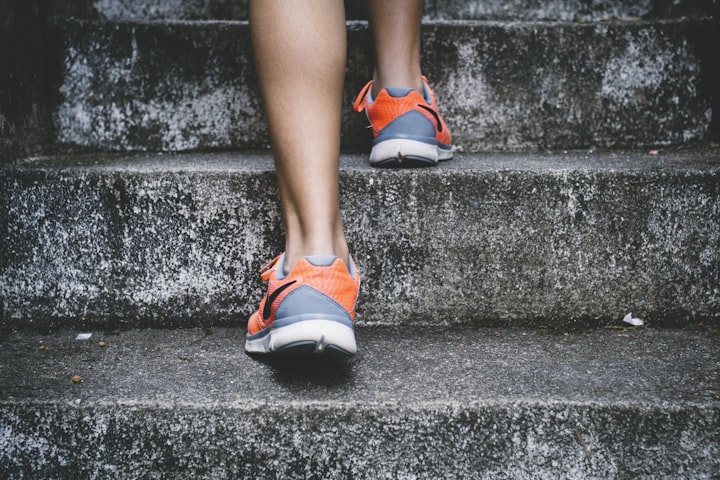The Benefits of Regular Exercise for mental and physical health
benefits of regular exercise

Introduction
Regular exercise is one of the most effective ways to improve overall health and well-being. Not only does exercise help keep our bodies in shape, but it can also have a profound impact on our mental health. As we all know, physical activity has a long list of health benefits, from improving cardiovascular health to reducing the risk of chronic diseases. But did you know that exercise can also help reduce stress, anxiety, and depression, boost mood, and improve cognitive function? In this article, we'll take a closer look at the benefits of regular exercise for both physical and mental health, and explore some tips for incorporating exercise into your daily life. Whether you're a seasoned athlete or just starting out, you'll find plenty of useful information on how to improve your overall health and well-being through regular exercise.
Physical Benefits of Exercise
Regular exercise is crucial for maintaining good physical health. Whether you're young or old, exercise can help improve cardiovascular health, reduce the risk of chronic diseases, and aid in weight loss. Here are some of the ways in which exercise can benefit your physical health:
- Improves cardiovascular health: Exercise helps strengthen your heart and cardiovascular system. When you exercise, your heart pumps more blood, which helps to increase your heart's strength and efficiency. This reduces your risk of developing heart disease, stroke, and other cardiovascular problems.
- Reduces the risk of chronic diseases: Exercise has been shown to reduce the risk of chronic diseases such as diabetes, cancer, and osteoporosis. Regular exercise can help regulate blood sugar levels, improve bone density, and reduce the risk of certain types of cancer.
- Aids in weight loss: Exercise is one of the most effective ways to lose weight and maintain a healthy weight. When you exercise, your body burns calories, which can help you lose excess fat and maintain a healthy weight.
- Improves mobility and flexibility: Regular exercise can help improve your mobility and flexibility, which can reduce the risk of falls and injuries. Exercise can also help improve balance and coordination, which is particularly important for older adults.
- Boosts energy levels: Regular exercise can help improve your energy levels by increasing blood flow and oxygen to your muscles. This can help you feel more alert and focused throughout the day.
Overall, the physical benefits of exercise are numerous and well-documented. By incorporating regular exercise into your daily routine, you can improve your cardiovascular health, reduce the risk of chronic diseases, maintain a healthy weight, and improve your overall physical well-being.
Mental Benefits of Exercise
In addition to the physical benefits, regular exercise can also have a profound impact on your mental health. Exercise has been shown to help reduce stress, anxiety, and depression, boost mood, and improve cognitive function. Here are some of the ways in which exercise can benefit your mental health:
- Reduces stress and anxiety: Exercise is a natural stress-reliever. When you exercise, your body releases endorphins, which can help reduce feelings of stress and anxiety. Regular exercise can also help improve your ability to cope with stressful situations.
- Improves mood: Exercise has been shown to be an effective way to improve mood and reduce symptoms of depression. This is because exercise releases endorphins, which can help boost your mood and make you feel more positive.
- Boosts cognitive function: Regular exercise can help improve cognitive function, including memory, attention, and decision-making. Exercise increases blood flow and oxygen to the brain, which can help improve cognitive function.
- Improves self-esteem: Regular exercise can help improve self-esteem and body image. This is because exercise can help improve physical fitness and appearance, which can lead to increased confidence and self-esteem.
- Helps with relaxation and sleep: Exercise can help improve relaxation and sleep quality. Regular exercise can help reduce tension and promote relaxation, which can lead to improved sleep quality.
Overall, the mental benefits of exercise are just as important as the physical benefits. By incorporating regular exercise into your daily routine, you can help reduce stress and anxiety, improve mood and cognitive function, and improve your overall mental well-being.
The Relationship Between Physical and Mental Health
It's important to recognize that physical and mental health are closely interconnected. Your physical health can have a profound impact on your mental health, and vice versa. Regular exercise is one of the best ways to improve both your physical and mental health.
- Exercise reduces stress and anxiety, which can have a positive impact on physical health. When you're stressed or anxious, your body releases cortisol, a hormone that can have negative effects on your physical health, such as increased blood pressure and heart rate. Regular exercise can help reduce cortisol levels, which can help reduce the negative effects of stress on the body.
- Exercise can help reduce symptoms of depression, which can have a positive impact on physical health. Depression has been linked to a variety of physical health problems, such as heart disease and diabetes. By reducing symptoms of depression, exercise can help reduce the risk of developing these physical health problems.
- Exercise can help improve physical health, which can have a positive impact on mental health. When you're physically healthy, you're more likely to feel good about yourself and have higher self-esteem. This can lead to improved mental health and well-being.
- Exercise can help improve sleep quality, which can have a positive impact on both physical and mental health. Poor sleep quality has been linked to a variety of health problems, including obesity, heart disease, and depression. Regular exercise can help improve sleep quality, which can have a positive impact on both physical and mental health.
Overall, it's clear that there's a strong relationship between physical and mental health. Regular exercise can help improve both your physical and mental health, which can lead to improved overall health and well-being. By incorporating regular exercise into your daily routine, you can help ensure that you're taking care of both your physical and mental health.
Tips for Incorporating Exercise into Daily Life
For many people, finding time to exercise can be a challenge. However, there are many ways to incorporate exercise into your daily routine, even if you have a busy schedule. Here are some tips for incorporating exercise into your daily life:
- Start small: If you're new to exercise or have a busy schedule, it's important to start small. Set achievable goals, such as going for a 15-minute walk every day, and gradually increase your activity level over time.
- Make it a habit: The key to incorporating exercise into your daily routine is to make it a habit. Schedule exercise into your calendar, and make it a non-negotiable part of your day.
- Find activities you enjoy: Exercise doesn't have to be a chore. Find activities that you enjoy, such as dancing, hiking, or swimming, and incorporate them into your daily routine.
- Make it social: Exercise can be a great way to socialize and connect with others. Join a fitness class, go for a walk with a friend, or join a sports team to make exercise a social activity.
- Make use of technology: There are many apps and tools available that can help you track your exercise and stay motivated. Use a fitness tracker or download an exercise app to help you stay on track.
- Make it a family activity: Exercise can be a great way to spend time with your family. Go for a family walk or bike ride, or play a game of soccer together in the backyard.
- Use your environment: Look for opportunities to incorporate exercise into your daily routine. Take the stairs instead of the elevator, walk or bike to work instead of driving, and take a walk during your lunch break.
Overall, incorporating exercise into your daily routine doesn't have to be difficult. By starting small, making it a habit, finding activities you enjoy, making it social, using technology, making it a family activity, and using your environment, you can make exercise a regular part of your daily life.
Conclusion
In conclusion, regular exercise provides many benefits for both physical and mental health. From improving cardiovascular health to reducing stress and anxiety, exercise is an important part of a healthy lifestyle. Incorporating exercise into your daily routine can be a challenge, but by starting small, making it a habit, finding activities you enjoy, making it social, using technology, making it a family activity, and using your environment, you can make exercise a regular part of your day. By taking care of your physical and mental health through exercise, you can improve your overall well-being and enjoy a happier, healthier life. So, make exercise a priority and start reaping the benefits today!
About the Creator
Rehmat Well-being
Transform your life with us! we empower you with health tips, mindfulness practices, and a holistic approach to a happier life. Nourish your mind, body, and soul and live your best life. Join the journey to radiant health and joyous living!






Comments
There are no comments for this story
Be the first to respond and start the conversation.